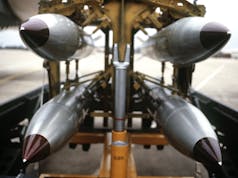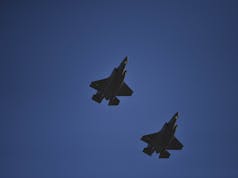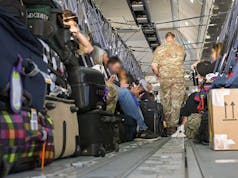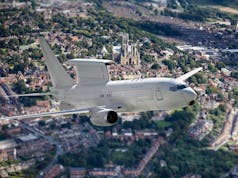Airbus has been awarded a series of contracts from the Ministry of Defence both as part of its continuing programme of upgrading and enhancing services for the Skynet 5 military satcom services contract, and continued work with the MoD’s Defence Digital organisation.
The firm say here that activities in the Maritime domain include introducing further quality of service improvements for Maritime Network Evolution (MNE) services to enable continued Wi-Fi access for deployed personnel while on operations.
Airbus has also completed a series of baseband upgrades and improvements for eight SCOT5 FMT ships.
“Focusing on the land domain, Airbus has recently had a significant order placed for its Bracer service from the UK MOD. Designed by Airbus partner QinetiQ, the Bracer device and service can operate in the planet’s harshest environments to provide end-to-end encrypted beyond line of sight (BLOS) capabilities. Together with innovative provider Ovzon, Airbus has achieved a first type of sale to deliver the T5 terminal, a compact laptop sized on-the-pause terminal and satellite services to the MOD. Airbus has also recently unveiled team ICELUS, which will focus on the upcoming System Integrator (SI) opportunity for the British Army’s future tactical communication programme, LE TacCIS. Airbus is also providing fibre broadband and infrastructure services to the MOD’s Abbey Wood headquarters.
Airbus has agreed a contract to provide Ku-band airtime for the Poseidon P8 maritime patrol aircraft as they enter service, as well as also agreeing renewals to provide continued Ku-band airtime support for the UK Reaper UAV – highlighting Airbus’ continued support to the RAF for future missions.”
Richard Budd, Head of Secure Communications UK & US at Airbus Defence and Space said:
“These latest services and hardware upgrades are part of the fundamental philosophy behind Skynet 5 – to continually provide the customer with innovative solutions, enabling them to stay at the forefront of expertise and technology. And in keeping with our partnership approach we work with UK SMEs to fulfil the contracts, further developing the UK Space Ecosystem and providing value for money for the taxpayer.”
The Skynet 5 programme, managed by Airbus, has provided the MoD with a suite of secure military communications services, supporting operations in Iraq, Afghanistan and the Balkans.
“The programme commenced by using the legacy Skynet 4 satellites and then augmenting them with a fully refurbished ground network before launching the Skynet 5A, 5B, 5C and 5D satellites between 2007 and 2012. Through the many years of Airbus delivering an exceptionally reliable Skynet service the programme has reduced or removed many of the technical and service risks for the MOD, whilst ensuring unrivalled secure satellite communications to UK forces delivering both operational and information advantage at the greatest time of need.
Looking to the future, the UK’s space industry leader Airbus, has teamed with KBR, Leidos UK, Northrop Grumman and QinetiQ to bring new thinking to future space solutions and to launch the Open Innovation – Space initiative. The aim of Open Innovation – Space is to further increase SME involvement in UK future satellite communications services and space activities creating high value jobs and growth across the UK.”













Is Airbus a French company?
If you could be bothered to Google it, then you might find your answer. In short, no. European is how it is described. Such a scary word, I know! Countries are working together instead and dividing apart.
A European conglomerate formed from mergers and acquisitions of various defence contractors over the years.
Amongst others Marconi–BAe Systems—Astrium—EADS to its present formation.
By the way it revolutionised RN Satcom provision. New FMT SCOT 5 systems, Ground stations, Upgrades to baseband equipment, Welfare services to deployed units, 24/7 SATCOM connectivity for all sorts of IT systems…the only bad thing it did was tried to put TV over SCOT . It was very, very low rez and pretty much unwatchable. It was known as jerky TV during its short life span and it was rapidly replaced by dedicated stabilised TV Sat receivers onboard ships.
It is European. France and Germany own about 11% each, while Spain has about 5% stake.